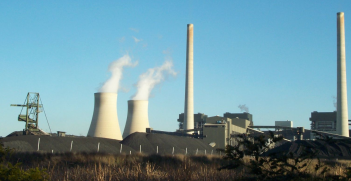The Sino-Australian Relationship: The Geopolitics of a Post COVID-19 International Order

China seems poised to emerge from the current crises stronger than before. This will test the Sino-Australian relationship that has been characterised by mutual strategic interest and mutual distrust.
Two schools of thought are emerging of the international order in a post COVID-19 world and what this entails for the Sino-Australian relationship. One is that it is transformational and will serve to reshape the global balance of power. The second is a continuation of the challenges that are faced presently which will only deepen.
In the eyes of some commentators, the former highlights a change towards the international order that is already coming as President Xi Jinping has declared that he intends to restore China’s historical position of supremacy in Asia and as a global hegemon. A move toward a China-centric international order replacing the US international order is observed as likely in the foreseeable future.
Before COVID-19, US President Donald Trump focused inward on domestic issues and operated with transactional unilateralism, which enhanced the prospect of accelerating a Sino-centric order in the Indo-Pacific region. However, the COVID-19 pandemic has shifted and reversed the US-China engagement strategy under former US President Barrack Obama. With bipartisan support from the Republicans and Democrats, the US is leading a wide-ranging strategic confrontation against China on all fronts, including technological, economic, and defence to deter a Sino-centric international order.
On the second school of thought, I anticipate that in the post COVID-19 world it does not necessarily preclude China’s continued ascent to power within the Indo-Pacific region, but it will exacerbate the current state challenges with greater intensity. It raises immediate questions on whether China is attempting to challenge the US as a regional hegemon, or evolve into a multipolar region working alongside Australia, India, Indonesia, Japan and the US. COVID-19 demonstrates that competition and tensions between China and the US will further deepen in the Indo-Pacific region, spilling onto Australia.
Two key milestones are coming up for China which will see its strategic objectives unchanged: first, the Chinese Communist Party’s (CCP) 100th year anniversary will take place in 2021 to celebrate longevity and stability, and second, Xi Jinping is likely to continue as China’s leader for another five-year term in 2022. Through this lens, the CCP will remain unwavering. Continuity on how China approaches the international order is likely as the central tenets of domestic and foreign policies that drive the CCP have not altered and it is improbable they will amend them in the short to medium term.
China will endeavour to find tactical advantages in how they manoeuvre their foreign policy objectives in the Indo-Pacific region as it appears to emerge from COVID-19 in a stronger geoeconomic position compared to the US and its allies. For Sino-Australia relations, China will maintain a strong interest to access Australia’s strategic mineral and agricultural resources, political influence in the South Pacific, the US via the ANZUS Treaty, and as a member of the Five Eyes intelligence network, and as an influential middle power in the international order, particularly in the Asia-Pacific region where China has intentions to control. China will correspondingly continue to counteract the Royal Australian Navy’s operational engagement in the South China Sea, Australia’s banning of Huawei to enter the 5G network, the enactment of foreign interference legislation and the transparency and disclosure official register within the Attorney General’s Department, and Australia’s entry into the trilateral Blue Dot Network to help develop infrastructure in the Indo-Pacific region in opposition to the Belt and Road Initiative.
In Australia’s neighbourhood, the Pacific is an important region for Australia-China contestation. China’s engagement in the Pacific Islands has seen it send medical supplies in response to COVID-19 to support Vanuatu and French Polynesia. At this time, Australia has an opportunity to offer the Pacific Island countries both practical assistance and regional leadership to avert a prospective outbreak, ensuring it is well placed post COVID-19 to secure its regional strategic interest and to neutralise an increase of Chinese influence in the area.
Sino-Australia relations will be further tested by the Australian Foreign Minister Marise Payne’s call for a global COVID-19 review into the origins of the virus, how it was permitted to spread, and China’s handling of the initial outbreak in Wuhan. Senator Payne outlined that “my trust in China is predicated in the long-term there. My concern is at a high point. My concern is around transparency and ensuring that we are able to engage openly.” Peter Hartcher argues that between Australia and China, “any trust has to be forced and verified.” When considering all of the aforementioned issues, concerns, and reading between the lines, there is currently minimal trust between Australia and China. As former Australian Foreign Minister, Julie Bishop points out, “Australia’s relationship with China is under constant review… which requires a great deal of nurturing, management and a building of trust.”
The geopolitical struggle post COVID-19 with Australia and China has vast implications for the Indo-Pacific region and will persist to test both countries’ alliances, defence and security, economies and political values. The Sino-Australian relationship is one of Australia’s greatest foreign policy challenges and finding a way forward that achieves an appropriate balance of maximising opportunities whilst acknowledging the risks, issues, and concerns when dealing with China will remain difficult.
John Varano is a Senior Manager at nbn™ Australia. John has advised and supported C-suite and senior executives at ASX companies and government departments. His professional experience extends across multiple geographies, including Australia, the EU, UK, and US. John is a Graduate of the Australian Institute of Company Directors and an Associate Fellow of the Institute of Managers and Leaders. He holds a Master of Science from the University of Oxford, a Master of Business Administration from Johns Hopkins University, and a Master of Arts from The University of Melbourne with First Class Honours. He completed his undergraduate studies with Honours at Monash University.
This article is published under a Creative Commons Licence and may be republished with attribution.





